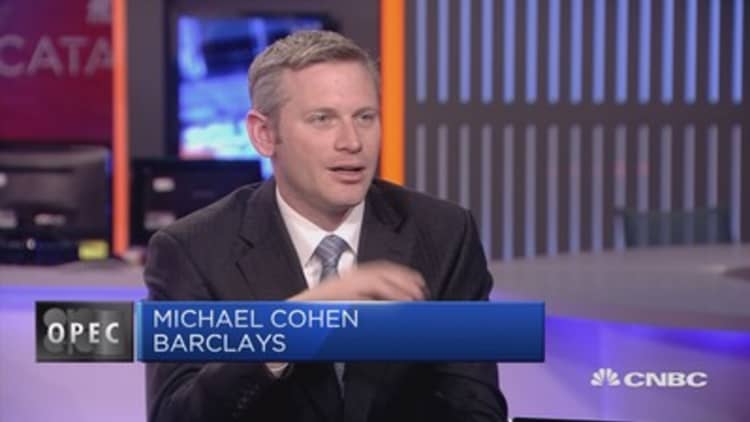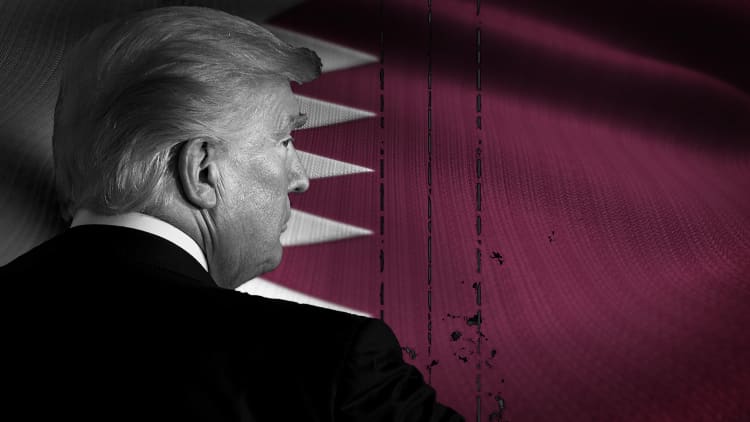
The risk of U.S. legal action against OPEC could prompt more members of the influential oil cartel to sever ties with the group, according to the head of energy markets research at Barclays.
Washington is reportedly considering legal claims against OPEC for allegedly manipulating the energy market.
If passed, the proposed No Oil Producing and Exporting Cartels Act — more commonly referred to as NOPEC — could revoke the sovereign immunity that has long shielded members of the Middle East-dominated group from U.S. legal action.
"This is a big concern," Barclays' Michael Cohen told CNBC's "Squawk Box Europe" on Tuesday.
"I think it's something that could very easily weigh on the messaging of this meeting that is going to happen on Thursday and Friday," he added.
What is NOPEC?
The NOPEC bill would amend U.S. antitrust laws to allow OPEC members to be sued for collusion. OPEC controls production from member nations by setting output targets.
Historically, former U.S. presidents have opposed NOPEC legislation. But, some external observers say President Donald Trump could give the bill fresh momentum after repeatedly attacking the group for keeping oil prices "artificially very high."
The president is publicly in favor of low fuel prices and has urged OPEC and non-OPEC producers not to cut production later this week.
"It is certainly possible that a country that is looking to enhance or burnish its ties to the United States may look at the NOPEC legislation and say: 'Well, we don't want to be a part of this organization anymore,'" Cohen said.
OPEC were not immediately available for comment when contacted by CNBC Tuesday morning.
Qatar quits
OPEC and non-OPEC members are due to meet in Vienna, Austria, on Thursday, with the energy market widely expecting the alliance to orchestrate a fresh round of supply cuts.
Ahead of the much-anticipated meeting, Qatar abruptly announced Monday that it would withdraw from the 15-member group from January 1, ending a membership that has stood for more than a half-century.
In explaining the small Gulf country's decision to leave OPEC, Qatar's Energy Minister Saad al-Kaabi said Monday that Doha did not have "great potential" in oil and so it would focus its efforts on gas production instead.
While Qatar is one of OPEC's smallest crude producers, especially when compared to the likes of de facto leader Saudi Arabia, it is one of the world's largest producers of liquefied natural gas (LNG).

Qatar's Al-Kaabi denied the decision was linked to the 18-month political and economic boycott of Doha.
Since June 2017, OPEC kingpin Saudi Arabia — along with three other Arab states — has cut trade and transport ties with Qatar, accusing the country of supporting terrorism and its regional rival, Iran. Qatar denies the claims, saying the boycott hampers its national sovereignty.
"Oil production of around 600,000 barrels per day might seem negligible (but) its decision to leave OPEC might weaken the organization's influence in managing global oil supply," Tamas Varga, senior analyst at PVM Oil Associates, said in a research note published Tuesday.


